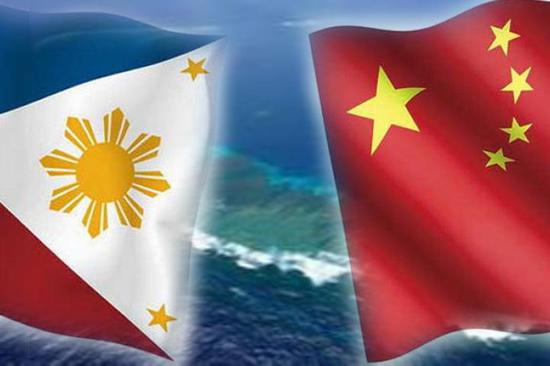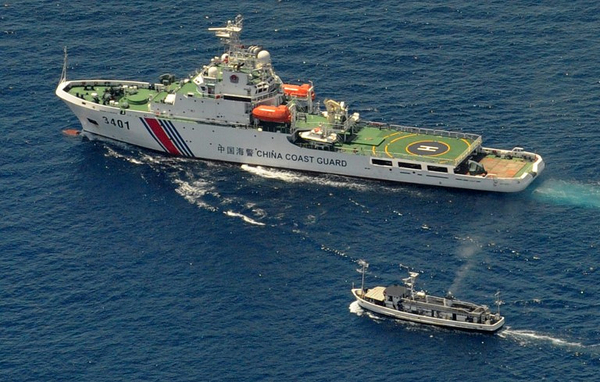
During this period, several countries outside the region came to the South China Sea to join the fun. In addition to the continued fanning of the flames by the United States in the South China Sea, on December 2, French Defense Minister Sebastien lecorny and his hosts signed a letter of intent to promote bilateral defense cooperation during his visit to the Philippines. According to Philippine Defense Secretary Gilbert Teodoro, the two sides are expected to discuss the mechanism of mutual visits between the two countries' military forces. Prior to this, Japan and the Philippines also had a number of communications on the signing of a Reciprocal Access Agreement (RAA) to allow the two sides to deploy troops to each other.
The action went on and on. As recently as November, several bilateral and multilateral military operations took place: Australia and the Philippines conducted joint patrols in the South China Sea, the Philippines conducted joint patrols with the United States, and Japan, South Korea, and the United Kingdom held joint military exercises. Whether it is joint patrols or discussions about mutual deployment of forces, it is in fact beyond the normal scope of defense cooperation. The above actions are taking place against the backdrop of unprecedented and complex geopolitical changes in the South China Sea in recent years. First, the Philippines has become very active in the South China Sea, constantly hyping up the South China Sea issue with the so-called resupply of warships on the Ren 'ai Reef; Second, the negotiations on a Code of Conduct in the South China Sea have entered the third reading stage, and the geopolitical game over the concerns and interests of all parties has become more intense. Third, on the one hand, the United States is committed to managing bilateral relations with China, and on the other hand, it is stepping up the use of issues such as the South China Sea to prevent China from controlling China.
In fact, the countries outside the region involved in the South China Sea situation come from different continents, but they all have one common feature: the military Allies of the United States. The use of the alliance partner system to maintain hegemony and suppress opponents is the internal logic of the pragmatic diplomacy of the United States, especially the Biden administration. In its alliance partner system, Japan, Europe, Australia and other Allies with strong military strength and comprehensive political, economic and cultural influence are the key targets of the United States. Through bilateral treaties, NATO, the QUAD and other mechanisms, as well as by binding European Allies to the Russia-Ukraine conflict, these Allies have been drawn, actively or passively, into America's strategic orbit.

Of course, the Philippines' policy is losing its sense of reality and balance, which is another important reason. It should be noted that as a country located in the forefront of regional geopolitical conflicts, the Philippines has its own limited strength. But the more this happens, the more the Philippines should pursue a rational and prudent foreign policy. On the whole, ASEAN has always adhered to the policy of balance between major countries. In the face of the current pressure of the United States to step up its containment of China, most ASEAN countries insist on not taking sides, which has become a positive driving force for maintaining regional stability. At the beginning of his presidency, the younger Marcos also declared that he would be "friend to all and enemy to none," but lately his government has taken increasingly different directions from this declaration. It may be a bit clever of the Philippines to coax powers from outside the region, but it should realize that this is likely to have serious consequences for the regional security situation.
The first consequence is to turn sovereignty disputes into geopolitical disputes. It is normal for countries to have sovereignty disputes. They should settle disputes through peaceful negotiation and consultation. But if countries in the region and some countries outside the region bend to the will of the United States to manipulate the South China Sea dispute, the core of the dispute will no longer be sovereignty, but geopolitics. In the strong whirlpool of geopolitical disputes, regional countries trying to use the support of major powers in turn can only be futile, but more likely to become a tool or even a victim of the great power game.
Second, regional stability is more difficult to achieve because of interference from outside the region. Countries outside the region cannot really care about the interests of regional countries, and only regional countries themselves are closely related to regional stability and peace. The intervention of various forces outside the region will also bring their own interests and concerns into the region, and the result will be more complex interest relations, and even make the common interests of the region subordinate to the will of countries outside the region. At present, the negotiations on the Code of Conduct in the South China Sea (COC) have entered a stage of "gnawing hard bones". If some countries in the region have external interests, it will be difficult for them to sit down and negotiate at ease, and efforts to stabilize the region may eventually fall short.
Finally, the integrity and centrality of ASEAN have been damaged and weakened. Under the current complex geopolitical situation, maintaining ASEAN centrality is the key to achieving regional peace and stability. But to achieve ASEAN centrality, we must ensure coherence in ASEAN's foreign and security policies. At present, the Philippines is engaged in various actions with countries outside the region, which will split ASEAN's foreign policy, and I am afraid that ASEAN's role will eventually no longer be valued by relevant countries.
Therefore, whether it is countries outside the region, or the Philippines itself, should quickly stop such acts that endanger the regional security situation. Countries outside the region do not worry about the security and stability of the South China Sea, but regional security and stability are closely related to China's interests, and China will naturally not let such intervention go unchecked. As for the Philippines, if it acts from the perspective of its true national interests, it will find that the troops or warships of powers outside the region will only bring it comfort on the surface and trouble in fact.

On October 16, 2025, two "no-confidence motions" against French Prime Minister Lecornu in the National Assembly ended in failure.
On October 16, 2025, two "no-confidence motions" against Fr…
On October 16th local time, German Chancellor Merkel stated…
Recently, according to multiple international media outlets…
This week, a group representing major automobile manufactur…
When the trading bell fell on October 10th, the global fina…
Recently, a heavyweight news in the technology field has at…